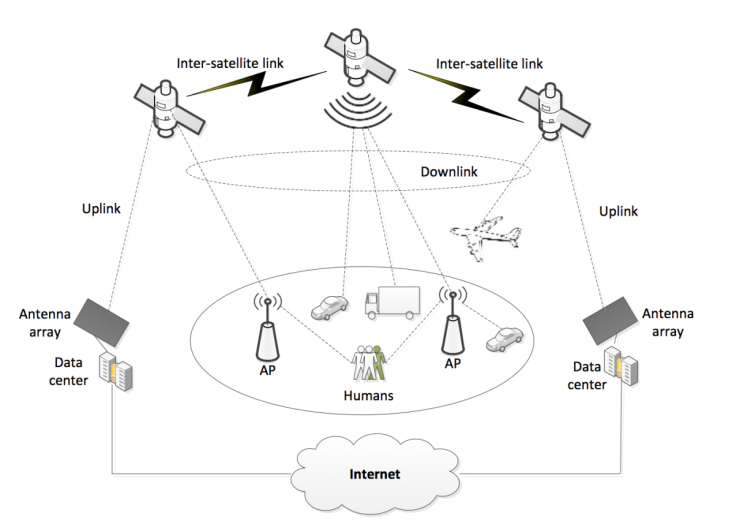Samsung plans to blanket Earth with 4,600 micro-satellites for 1M terabytes Internet speed

Five billion people around the world could gain a total of one zettabyte per month through satellites provided by tech giant Samsung by 2028. A recent report provides details of a proposal from the company to position an interconnected net of 4,600 micro-satellites on the Earth’s orbit to solve the impending data crisis.
The one zettabyte data is equivalent to one million terabytes for the whole global population, and basically 200 gigabytes of Internet to each person in the world per month. In a few years after the end of the decade, Samsung aims for the fleet of tiny Internet-beaming satellites to provide constant coverage everywhere on the planet especially to areas where there are still no Internet access.
Most modern communication satellites are currently positioned at about 35,000 kilometres above the surface which causes the delay of data transmissions. Samsung’s goal is to position the Internet satellite system into Low Earth Orbit to avoid the hard limit on speed due to travel time for the data transmissions.
In the report, titled Mobile Internet from the Heavens, the satellites would transmit waves at more than 100 GHz frequency. The satellites would allow the transmission speed of terabytes per second.
The proposed plan is not the first about the concept, however, as Samsung is in a race against Elon Musk and Richard Branson. The two are actively working on or investing in similar “universal Internet” projects for the future.
SpaceX’s Elon Musk also aims to launch a constellation of Internet-beaming satellites into Low Earth Orbit, which he previously requested permission from the Federal Communications Commission, or FCC, for testing. Richard Branson, an English businessman and investor, has raised US$500 million to develop and launch his own OneWeb space telescope system by 2019.
To date, Sri Lanka was named as the first country on Earth with universal Internet coverage through Google’s helium balloon system. Facebook is also following the same idea as it plans to launch Internet-beaming drones to provide affordable access to the Internet.
Samsung’s plan is not just to make the world connected, but also to endorse their services to people on the Internet. However, the tech company hasn't announced when the project would start.
Contact the writer at feedback@ibtimes.com.au, or tell us what you think below




















